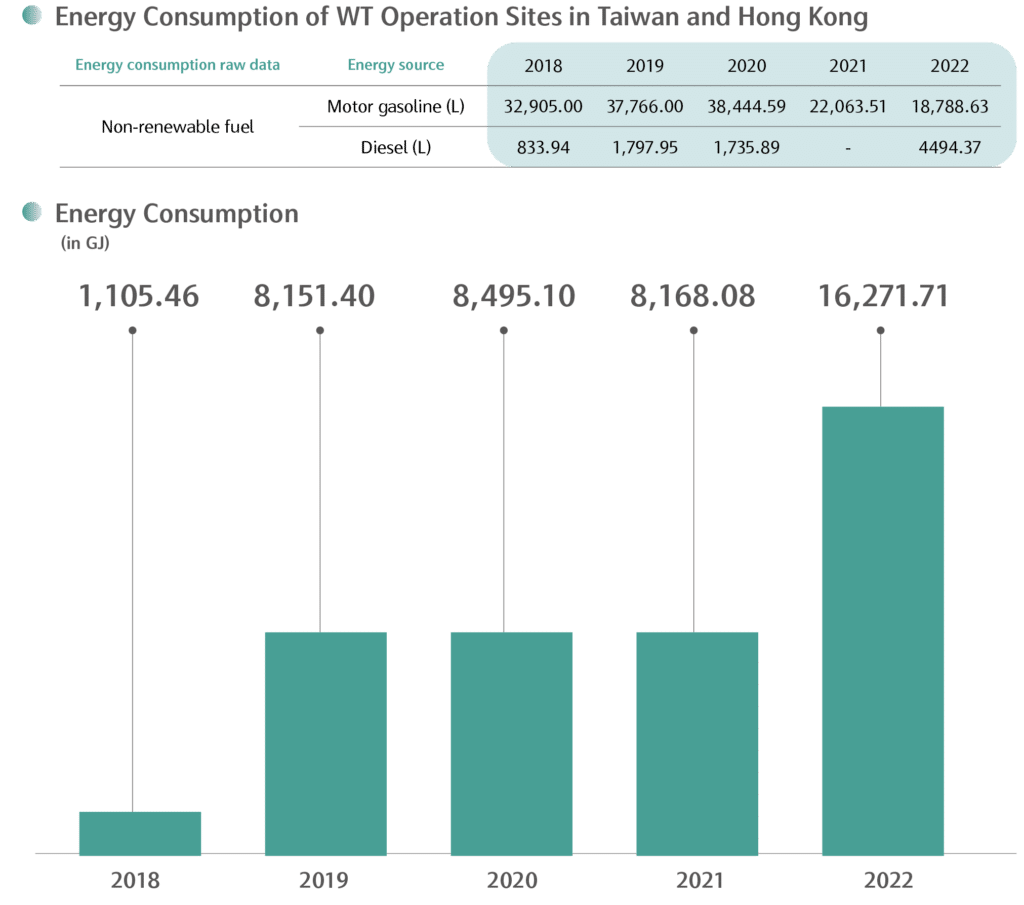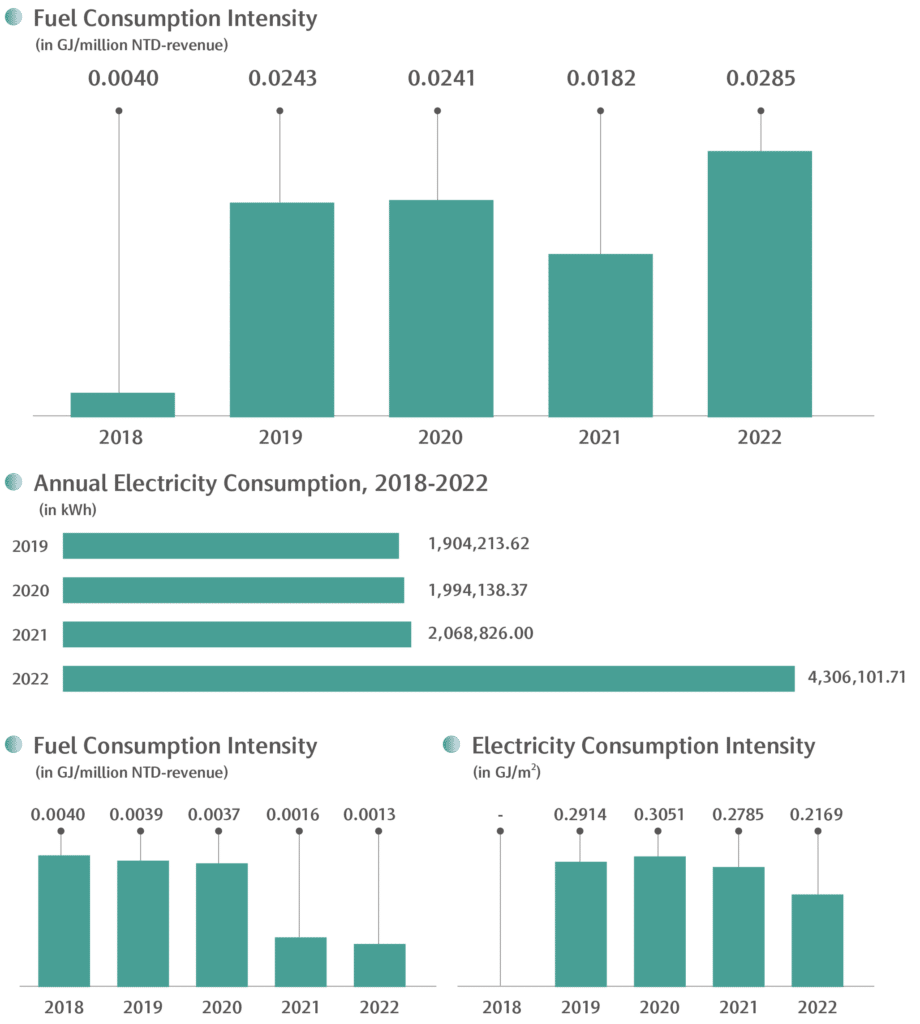Energy and electricity saving start from the purchase of green energy and electricity.
WT’s total energy consumption was 16,271 GJ in 2022, with an increase due to the inclusion of operating bases in China and South Korea in the scope. The biggest source of energy was non-renewable electricity purchased from power companies, accounting for 95.27% of the total consumption, and the others were gasoline and diesel used by company fleet. As of the end of 2022, the non-renewable energy utilization rate was 100%, and no renewable energy has been used. The Shanghai Office is planned to be equipped with solar power generation systems in 2023 to increase the utilization rate of renewables.
The total electricity consumption was 4.3061 MWh in 2022, of which the total electricity consumption in the areas where the GHG emissions inventory was verified (logistics centers in Taiwan, Hong Kong and Singapore) was 3.0889 MWh. The electricity consumption intensity was 76.88 kWh/m², down 0.63% compared to 2021.
As fuel consumption is closely related to the operating activities, the combined energy intensity of gasoline and diesel was therefore measured by revenue. In 2022, the energy intensity of gasoline and diesel was 0.0013 GJ/million NTD-revenue, significantly down 18.75% from 2021.


Note 1:See 6-5 GHG Inventory and Verification Situations for organizational boundaries.
Note 2:In 2022, the operating bases in China, Hong Kong, South Korea, and Singapore were newly-included in the voluntary inventory scope. Due to the nature of electricity consumption in which form the majority of the energy was consumed by WT, the energy consumption intensity was measured by floor area, and the coverage rate of the energy disclose scope was 99.06% in 2022.
Note 3:The electricity data were taken from the electricity bills of each bases, and the gasoline and diesel data were taken from the record on the CPC Electronic Billing and Collection System (EBCS) and the fuel invoices.
Note 4:Thermal conversion factor for electricity: 1 kWh purchased electricity = 0.0036 GJ;
Note 5:Thermal conversion factors for fuels were taken from the Annual Energy Report of the Bureau of Energy, Ministry of Economic Affairs, which were 1 liter of motor gasoline = 7,800 kcal, and 1 liter of diesel oil = 8,400 kcal.
Note 6:1 kcal = 4,186 joules
Note 7:The electricity intensity was measured by floor area, see Note 7 for GHG Emissions Intensity; the gasoline and diesel combined intensity was measured by annual revenue, see 2-2 Stable Financial Performance for operating incomes of the years.

